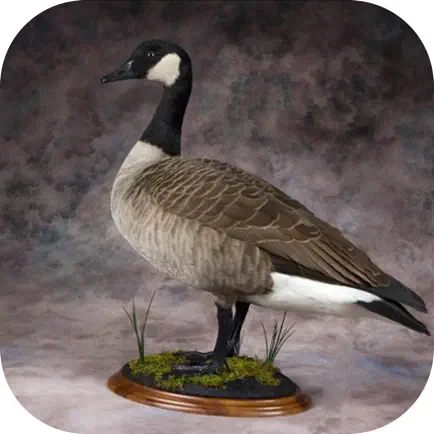
Goose Hunting Calls - Goose Sounds Hack 1.1 + Redeem Codes
Developer: Red Stonz Technologies Private Limited
Category: Entertainment
Price: Free
Version: 1.1
ID: com.redstonz.technologies.goose.hunting.calls.free
Screenshots



Description
Goose hunting calls program turns your mobile phone into a hunting electronic bird caller. Here you will find the calls of goose, as well as their image. For best effect can be connected to an external active speaker.
In the library of voices included goose hunting calls such as:
1. Bean goose. The bean goose is a goose that breeds in northern Europe and Asia. It has two distinct varieties, one inhabiting taiga habitats and one inhabiting tundra. These are recognized as separate species by the American Ornithologists' Union but are considered a single species by other authorities, such as the British Ornithologists' Union. It is migratory and winters further south in Europe and Asia.
2. Greylag goose. The greylag goose (Anser anser) is a bird in the waterfowl family Anatidae. It has mottled and barred gray and white plumage and an orange beak and legs. A large bird, it measures between 74 and 91 centimeters (29 and 36 in) in length, with an average weight of 3.3 kilograms (7.3 lb). Its distribution is widespread, with birds from the north of its range in Europe and Asia migrating southwards to spend the winter in warmer places.
3. Canada goose. The Canada goose (Branta canadensis) is a large wild goose species with a black head and neck, white patches on the face, and a brown body. Native to arctic and temperate regions of North America, its migration occasionally reaches northern Europe. It has been introduced to the United Kingdom, New Zealand, Argentina, Chile, and the Falkland Islands. Like most geese, the Canada goose is primarily herbivorous and normally migratory; it tends to be found on or close to fresh water.
4. The greater white-fronted goose (Anser albifrons) is a species of goose. The greater white-fronted goose is closely related to the smaller lesser white-fronted goose (A. erythropus). In Europe it has been known as simply "white-fronted goose"; in North America, it is known as the greater white-fronted goose (or "greater whitefront"), and this name is also increasingly adopted internationally.[1] It is named for the patch of white feathers bordering the base of its bill. But even more distinctive are the salt-and-pepper markings on the breast of adult birds, which is why the goose is colloquially called the "specklebelly" in North America.
Install goose hunting calls program and turn your mobile phone into professional bird caller.
In the library of voices included goose hunting calls such as:
1. Bean goose. The bean goose is a goose that breeds in northern Europe and Asia. It has two distinct varieties, one inhabiting taiga habitats and one inhabiting tundra. These are recognized as separate species by the American Ornithologists' Union but are considered a single species by other authorities, such as the British Ornithologists' Union. It is migratory and winters further south in Europe and Asia.
2. Greylag goose. The greylag goose (Anser anser) is a bird in the waterfowl family Anatidae. It has mottled and barred gray and white plumage and an orange beak and legs. A large bird, it measures between 74 and 91 centimeters (29 and 36 in) in length, with an average weight of 3.3 kilograms (7.3 lb). Its distribution is widespread, with birds from the north of its range in Europe and Asia migrating southwards to spend the winter in warmer places.
3. Canada goose. The Canada goose (Branta canadensis) is a large wild goose species with a black head and neck, white patches on the face, and a brown body. Native to arctic and temperate regions of North America, its migration occasionally reaches northern Europe. It has been introduced to the United Kingdom, New Zealand, Argentina, Chile, and the Falkland Islands. Like most geese, the Canada goose is primarily herbivorous and normally migratory; it tends to be found on or close to fresh water.
4. The greater white-fronted goose (Anser albifrons) is a species of goose. The greater white-fronted goose is closely related to the smaller lesser white-fronted goose (A. erythropus). In Europe it has been known as simply "white-fronted goose"; in North America, it is known as the greater white-fronted goose (or "greater whitefront"), and this name is also increasingly adopted internationally.[1] It is named for the patch of white feathers bordering the base of its bill. But even more distinctive are the salt-and-pepper markings on the breast of adult birds, which is why the goose is colloquially called the "specklebelly" in North America.
Install goose hunting calls program and turn your mobile phone into professional bird caller.
Version history
1.1
2017-07-12
This app has been updated by Apple to display the Apple Watch app icon.
Bug Fixing And Remove Extra Ads
Bug Fixing And Remove Extra Ads
1.0
2016-06-01
Ways to hack Goose Hunting Calls - Goose Sounds
- Redeem codes (Get the Redeem codes)
Download hacked APK
Download Goose Hunting Calls - Goose Sounds MOD APK
Request a Hack
Ratings
2 out of 5
3 Ratings
Reviews
T-Ger,
Ads over the calls.
Don’t mind ads, but if they’re played over the call sound, what’s the point of the app. Don’t bother





